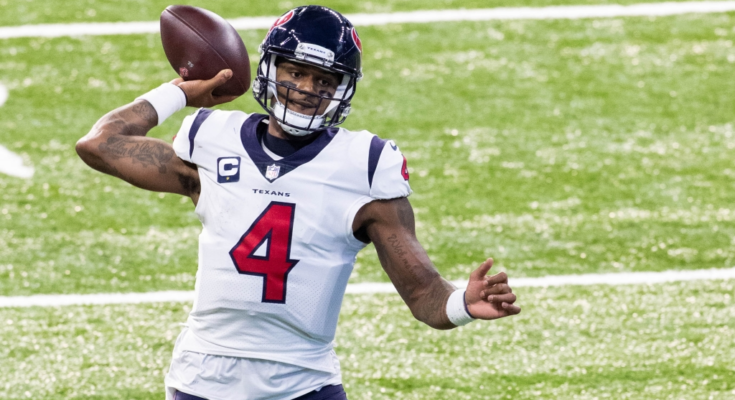On Friday, a grand jury finally will consider the criminal complaints made last year against Texans quarterback Deshaun Watson. Will the criminal process end today?
It ends today only if the grand jury decides not to charge Watson with any crime. Although there’s quiet optimism in Watson’s camp that he won’t be charged because the allegations against him don’t amount to criminal conduct, one or two misdemeanors are possible.
But misdemeanors can be managed, with a quick plea of guilty or no contest, or entry to a diversion program. However, any of those outcomes would virtually guarantee a suspension. The question is whether Watson would fight the misdemeanors in the hopes of avoiding or minimizing league-imposed discipline.
Friday’s outcome will be heavily influenced by the zeal of the prosecutor. The same latitude that allows a prosecutor to indict a ham sandwich (given that the ham sandwich has no lawyer in the room and no right to present contradictory evidence or argument) gives a prosecutor the ability to engineer a decision not to indict a given suspect, if the prosecutor chooses to introduce exculpatory evidence and/or to point to the flaws in the case.
Currently, we don’t know whether and to what extent the prosecutor is determined to indict Watson. But there’s one potential clue in the timing of the presentation of the evidence to the grand jury.
Previously, attorney Rusty Hardin expressed confidence that the grand jury’s work will be completed by April 1. With the grand jury getting the case today, it’s possible that the prosecutor decided to adjust the timetable in an effort to allow Watson to secure professional clarity as the league’s annual trading/free agency period begins.
Putting it another way, if the prosecutor were determined to make things as difficult for Watson as possible, the prosecutor would drag this out, forcing Watson to watch opportunities disappear as his legal status remains unresolved. By moving now, the prosecutor arguably is looking to be fair to Watson.
In turn, this could mean that the prosecutor will be making a fair and balanced presentation of evidence, instead of seizing on the opportunity to get the grand jury to indict Watson on the worst possible charges, regardless of whether an eventual conviction would be likely.
Even then, the grand jury decides whether to proceed with formal charges. That decision could come today, or it could come later.



